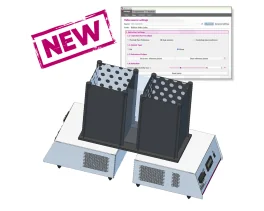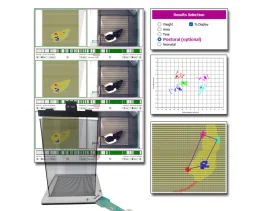Authors
Thougaard E, Nielsen PV, Forsberg A, Phuong V, Velasco AM, Wlodarczyk A, Wajant H, Lang I, Mikkelsen JD, Clausen BH, Brambilla R, Lambertsen KL.
Lab
Department of Neurology, Odense University Hospital, J.B. Winsløwsvej Odense C, Denmark.
Journal
J Neuroimmunol.
Abstract
Ischemic stroke often leaves survivors with permanent disabilities and therapies aimed at limiting detrimental inflammation and improving functional outcome are still needed. Tumor necrosis factor (TNF) levels increase rapidly after ischemic stroke, and while signaling through TNF receptor 1 (TNFR1) is primarily detrimental, TNFR2 signaling mainly has protective functions. We therefore investigated how systemic stimulation of TNFR2 with the TNFR2 agonist NewSTAR2 affects ischemic stroke in mice. We found that NewSTAR2 treatment induced changes in peripheral immune cell numbers and transiently affected microglial numbers and neuroinflammation. However, this was not sufficient to improve long-term functional outcome after stroke in mice.
BIOSEB Instruments Used
Grip strength test (BIO-GS4)
Source :
https://jneuroinflammation.biomedcentral.com/articles/10.1186/s12974-023-02946-z

 Douleur - Allodynie/Hyperalgésie Thermique
Douleur - Allodynie/Hyperalgésie Thermique Douleur - Spontanée - Déficit de Posture
Douleur - Spontanée - Déficit de Posture Douleur - Allodynie/Hyperalgésie Mécanique
Douleur - Allodynie/Hyperalgésie Mécanique Apprentissage/Mémoire - Attention - Addiction
Apprentissage/Mémoire - Attention - Addiction Physiologie & Recherche Respiratoire
Physiologie & Recherche Respiratoire




































 Douleur
Douleur Système Nerveux Central (SNC)
Système Nerveux Central (SNC)  Neurodégénérescence
Neurodégénérescence Système sensoriel
Système sensoriel Système moteur
Système moteur Troubles de l'humeur
Troubles de l'humeur Autres pathologies
Autres pathologies Système musculaire
Système musculaire Articulations
Articulations Métabolisme
Métabolisme Thématiques transversales
Thématiques transversales Congrès & Meetings
Congrès & Meetings